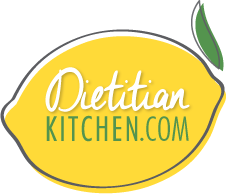If your egg is yellow, you're missing out on a ton of nutrition. If your egg is orange, well- you're getting a super food.
With so many options of eggs available at the grocery store, it can be so tiring and frustrating to know which carton to purchase. Organic, vegetarian-fed, free-range, pastured, omega-3 enriched- enough to make you want to call it quits and head to Waffle House for some scattered, smothered, covered...
Here's a simple breakdown of the major marketing wording for eggs available at your local grocery:
Conventional: This would be the yellow egg pictured above. A hen that produces a conventional egg is typically provided a grain-based diet, complete with hormones and antibiotics and spends it's life indoors. Wait- why are hens given antibiotics? Unfortunately, their poor diet, lack of exercise, and way-to-close for comfort living environment make them sick. Sick enough to require antibiotics. Sound familiar?
Vegetarian-Fed: This sounds healthy. But wait- hens are NOT vegetarians. They are omnivores and love to eat plants and insects. All this term means is that the hens were fed a grain-based diet, and most likely, a genetically modified one.
Cage-Free: Sounds like a healthier option but all this means is that the hens are not kept in cages. They could still be kept in tiny, indoor spaces all mashed up together like sardines. These hens may have limited access to the outdoors.
Omega- 3: What this means is that the hen's diet is supplemented with omega-3 fats, usually by way of flax seed.
Free-Range: These hens are allowed some access to the outdoors where they can eat what they were meant to (insects and plants) and get some sun and exercise.
Pastured: Yep, you got it. This is the best option. The orange egg pictured above. The omega-3's, beta-carotene, and the protein the hens eat give them this color. These hens are raised on a pasture where they are free to roam and eat. Hens that are pastured produce eggs that are, in my opinion, a super food. Pastured eggs have double the omega-3 content of their conventionally raised counterparts. No, not because their diet was supplemented, but because the plants and insects they eat gives them the omega-3s. Not only are pastured eggs higher in omega-3s, but they also are much higher in beta carotene (a form of vitamin A), vitamin D (which is actually a hormone), vitamin E, vitamin K2 (important for bone health), and choline (important for brain health), to name just a few.
If you can't find pastured eggs, your next best option is organic free-range which contain higher levels of the above nutrients mentioned. The third best option would be the omega-3 enriched eggs. Why? Because we are eating way too many omega-6 fatty acids which send the body into an inflammatory state. Simply put--the more omega- 3's the better.
Once you have purchased your super food eggs, here's a quick, yummy weekday breakfast.
Breakfast Pizza
What you need:
One slice of your favorite bread to toast
2 eggs that have orange yolks
Pizza sauce or tomato sauce, about 1/4 cup
Parmesan cheese, about 1/8 cup
Pepper to taste
Butter, 2 tsp.
Toast your bread. Fry the eggs in butter. When eggs are about halfway cooked, add the cheese, then the tomato or pizza sauce. When done, place cooked eggs with sauce on top of the toast. Top with fresh grated Parmesan Cheese. That's it!



